Open on Evenings & Holidays! Extended And Flexible Hours!
* DNA Testing for Immigration
* Paternity Testing
* Deceased Paternity
* Forensic Testing & Much More!
Open on Evenings & Holidays! Extended And Flexible Hours!
* DNA Testing for Immigration
* Paternity Testing
* Deceased Paternity
* Forensic Testing & Much More!
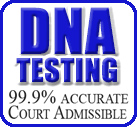
AB DNA Testing Services
Phone: 718-701-0292
We offer New York’s BEST AND MOST AFFORDABLE DNA TESTING with a full range of services to verify family relationships.
We specialize in the following types of DNA tests:
• Paternity • Maternity • Grand-parenting • Sibling Relationship • Biological Relationship Studies • Twin Studies • Deceased Paternity • Forensic Testing • Child Identity Testing • Family Tree and Genealogy Testing
* EVEN LOWER PRICE THAN HOME DNA KITS.
* NO HIDDEN COSTS – Collection kits, photography, and fingerprinting all included.
* 99.9% (OR GREATER) ACCURACY.
* FINAL RESULTS ARE PRESENTED IN A NOTARIZED DOCUMENT IN A CLEAR AND CONCISE FORM.
* ALL RESULTS ARE COURT ADMISSIBLE.
* OVER 15 YEARS EXPERIENCE.
* NO REFERRALS NECESSARY!
* FAST AND PAINLESS SAMPLE COLLECTIONS, USING BUCCAL (Mouth) SWABS.
* SPANISH, PORTUGUESE, FRENCH AND CREOLE SPOKEN.
* PLEASE SEE TRANSLATIONS OF OUR SERVICES IN: SPANISH, BENGALI, URDU, CHINESE AND NEPALESE!
Located In Woodside Queens, easily reachable from all boroughs (Queens, Manhattan, Brooklyn, Bronx and Staten Island), Westchester, Nassau and Suffolk.
We can also schedule DNA tests at our network of collection sites throughout New York city.
Call us. We have found that in many cases, our personalized service can overturn your denial. We will call the passport office or immigration dept. for you and plead your case over phone verbally.
90% of time they will revoke your denial, as long as you get the required information to them quickly.
AB DNA TESTING SERVICES
AB DNA Testing Services © |
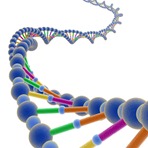 |
718-701-0292 We are open on evenings & holidays! |
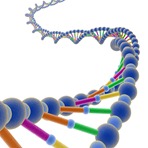 |
Legal Paternity Test: $349
NYS compliant testing only. NO HIDDEN COSTS OR EXTRA FEES.
We do not provide prenatal DNA testing in-house. If you need prenatal testing, we can refer you to a provider we’ve worked with previously:
Prenatal DNA Testing NYC.
AB DNA Testing Services offers a broad range of DNA testing options using certified, accredited laboratories and verified collection procedures.
Want to learn more about DNA & your genes? DNA, the molecule that carries the genetic instructions for life, is at the core of every cell in our bodies. Understanding DNA and genes is essential for grasping how we inherit physical and behavioral traits from our ancestors. This guide will demystify these complex biological concepts and explain their relevance in our everyday lives.

DNA, or deoxyribonucleic acid, is a long, twisting molecule that contains the unique genetic code that makes you who you are. This code determines everything from the color of your eyes to your susceptibility to certain diseases. Structurally, DNA is composed of two strands that coil around each other to form a double helix, held together by four types of molecules called nucleotides (adenine, thymine, cytosine, and guanine).
DNA is the hereditary material in humans and almost all other organisms. Every cell’s nucleus has DNA, which is copied and passed on during cell division. The instructions within DNA are essential for the development, functioning, growth, and reproduction of organisms.
A gene is a segment of DNA that is responsible for the physical and inheritable characteristics or phenotype of an organism. Each gene carries the instructions for making specific proteins, which in turn play key roles in bodily functions. The human genome consists of about 20,000-25,000 genes.
Although all human beings share the majority of their DNA, it’s the small variations in our genes that contribute to each person’s unique physical features and health predispositions. These variations can be as simple as a single genetic mutation or as complex as the combination of multiple gene sequences.
DNA testing involves analyzing a small sample of bodily fluid or tissue, typically blood or saliva. The test can provide various information, such as paternity, ancestral heritage, genetic disorders, and risk factors for certain diseases.
By understanding your genetic makeup, you can gain insights into your ancestry, health predispositions, and even find biological relatives. DNA testing can also be used for legal purposes, like establishing paternity or aiding in forensic investigations.
Research in DNA and genetics has paved the way for remarkable advancements in medicine, such as the development of targeted therapies for diseases like cancer. For genealogists and family history enthusiasts, DNA testing is a tool that can help map family trees and trace lineage.
Genetic testing provides a level of personal empowerment by offering a glimpse into your potential future health and helping you make informed lifestyle and medical decisions.
At AB DNA Testing Services in Queens NY, we offer an array of DNA testing options to suit your personal needs, from ancestry to health risk assessments. Our expert team ensures confidentiality and accuracy in every test.
Before understanding DNA and genetics and how they connect, you should know that the human body comprises 30,000 genes. In simple words, without genes, we wouldn’t have the genetic, physical features. Every person is different from others. It is because of the specific genes that are hereditary.
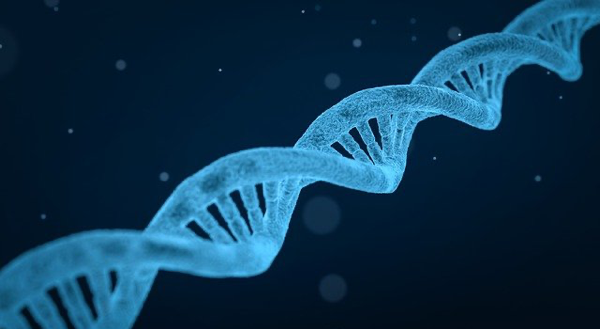
(Source)
You may resemble your other family members, perhaps your parents. However, through scientific testing, you may notice that you are different from everyone. Genes determine our physical features and characteristics, such as the shape of the nose, jaw alignment, fingerprint, head shape, height, and much more. So, we should spend a few minutes learning about DNA and genes.
Genes are present in our body as part of the living cells. They comprise the most important biological information that passes from generation to generation through parentage. They are responsible for your growth and cell development. One of the main components of a gene is DNA, a biomolecule known as “deoxyribonucleic acid.” DNA contains information regarding the development of your cells and is present in the nucleus of every cell.
To understand better, you should learn that half of your genetic information comes from your father while the other half is from your mother. They combine to form the genetic traits which make your physical features. Some of these features include your eye color, hair color, and more. Also, it involves carrying the risks of certain diseases that may also pass down from generation to generation. Uncertain genetic changes (mutations) can lead to disturbance in their function and development.
In basic terms, genes define nearly everything about a living organism. It’s not just the simple physical traits but also the habits and subconscious nature that form due to genetic information. For example, impulsive spending is a habit that you may inherit from your parents. From determining the physical characteristics to the chances of developing various diseases, genes are responsible.
DNA is present inside the center of a cell which is the nucleus. This is where it forms protein-carrying chromosomes that bind with the DNA known as “histones.” To begin with, DNA contains two strands that twist and form a spiral ladder structure which we refer to as a double helix. Here are the four building blocks of DNA (nucleotides):
These building blocks permanently attach (G to C and A to T) to form base pairs inside the DNA. These base pairs connect and hold both the strands of the DNA. Following that, genes become the small pieces of DNA that carry essential and highly specific genetic information.
DNA contains cell development and growth information based on which it instructs the cells of living organisms to reproduce, develop, and function. This information stays in the base pair sequences inside the DNA. Typically, your cells read the codes on the DNA to learn the information that instructs the production of proteins that are critical for physical survival and growth.
Gene is the name given to the entire DNA sequence carrying the essential growth information. Different base pairs in the DNA produce different types of proteins and acids in the living cells. Combinations like T-G-A, T-A-A, T-A-G, and some other proteins may signify a protein sequence’s end. Hence, the DNA also contains information to stop the production of protein.
Here are the main types of genetic testing that consider the precise information and characteristics they form in living organisms.
This DNA testing method ensures the health of a fetus and detects if it has a medical disorder like Down syndrome. Such test results help in guiding the vital decisions of handling the pregnancy. Learning about the medical condition of the fetus helps to maintain the health of the mother and the unborn child.
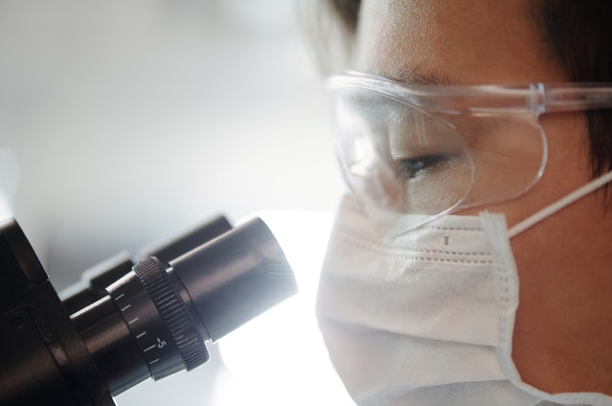
(Source)
Carrier testing hints towards learning the chances and likeliness of passing down a family disease or disorder to your children. You may previously have a family disease history which can lead to disturbance in your child’s life.
It measures the likeliness and chances of you carrying a genetically mutated cell or genetic change that may raise your chances of developing a certain kind of disease. Since this is predictive testing, it helps in managing health and disease prevention.
It is merely a DNA testing method to confirm a genetic condition that results in developing a disease of which you might be experiencing symptoms already.
It occurs for legal reasons such as identifying a dead body, crime-solving, establishing paternity, and so on.
If you are looking for the best place to get DNA or genetic testing, you are at the right place. At AB DNA Testing Services, our team of experts caters to your DNA testing needs and requirements. We provide effective testing techniques and methods, whether testing for immigration, paternity, maternity, or any other legal reason.
Give us a call today at 718-701-0292 to schedule an appointment. Pay us a personal visit at 63-11 Queens Blvd. Woodside, NY 11377 for further inquiries.
Reference Links:
https://medlineplus.gov/genetics/understanding/basics/gene/
https://www.ncbi.nlm.nih.gov/books/NBK9944/
https://le.ac.uk/vgec/topics/dna/dna-schools-and-colleges
https://www.genome.gov/genetics-glossary/Deoxyribonucleic-Acid
DNA refers to the deoxyribonucleic acid molecule, which contains vital instructions and data for organisms to develop. Nearly all living organisms have some type of DNA that guides the growth of their body through development and reproduction. DNA contains essential living information and is present inside nearly every cell, which passes down from generation to generation.
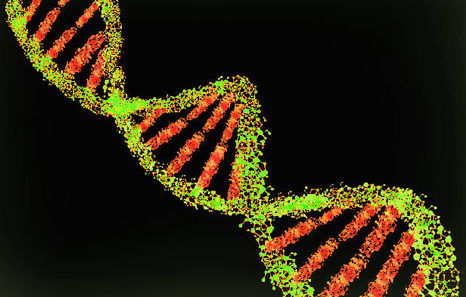
(Source)
From a medical point of view, DNA testing allows solving multiple problems relating to paternity, biological identifications, lineage, and ancestry. From a scientific point of view, the studies on DNA have developed comprehensible concepts that enhance the learning of human biology. So, let’s discuss in detail what DNA is.
It is a molecule (biomolecule), deoxyribonucleic, that contains genetic information specific to every organism. Whether it’s plants, bacteria, or humans, all comprise essential DNA information which is the foundation of our growth. Because DNA is hereditary, it passes down to generations, which enables the identification and detection of ancestry and lineage. In simple words, our genes contain the genetic material that defines who we are. All our physical traits, including height, shape, size, color, and more, is present in our genes as a form of hereditary information (codes).
A single gene refers to an individual length of DNA that is responsible for coding a particular protein. For example, one gene is responsible for the hormones that regulate blood sugar levels in your body. Thus, it codes the protein “insulin.” In particular, a human has around 30,000 genes in total. What’s more interesting is that our genes account for a mere 3% of our entire DNA, while the remaining DNA isn’t easily understandable yet. Experts believe that DNA has key functions, which include translation and transcription regulation.
DNA consists of nucleotides which are biomolecules. Each of these contains a sugar group, nitrogen base, and phosphate group. The four complex types of nitrogen bases that make up the DNA include thymine (T), guanine (G), cytosine (C), and adenine (A).
Normally, the nucleotides can join together to form two combined, long strands that create a spiral structure. Experts refer to it as a “double helix.” In the ladder-like double helix structure, experts suggest that we assume the sides to be sugar molecules and phosphate. Also, we regard the base pairs as rungs. In general, the bases of a single strand pair with the bases of another strand. Despite the size of a single DNA strand, an average human can contain over 3 million base pairs. In addition, nearly 99 percent of such DNA bases are identical in every human.
Every single cell in our body has the same type and form of DNA. However, each DNA still performs different functions for each cell and makes every organ behave distinctively. It is due to the gene expression, which refers to DNA as “traffic regulators” that actively instruct the cells to produce specific proteins.
Since we were talking about base pairs and genes, you should remember that four major bases of DNA organize themselves into genes, i.e., A, G, T, and C. The labels of the nitrogen base on your DNA are the language through which we comprehend and study genes. The genes’ codes base decides which proteins and amino acids to produce. Bear in mind that these are the vital functional and structural units of a cell. Overall, this process of forming and coding proteins is “transcription.”
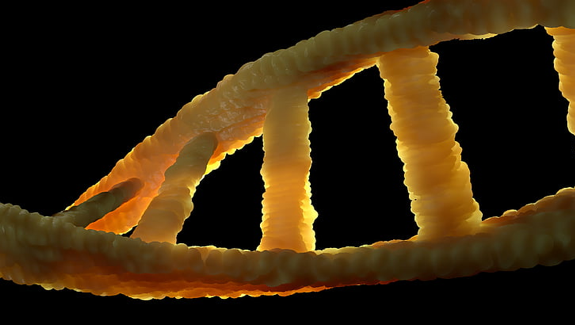
(Source)
It is a fact that both DNA strands house identical genetic information. However, DNA replication is highly necessary for our bodies to develop/function accordingly and pass the information down to the follow-up generation. Without this process through base pair sequences, it becomes impossible to produce the same type, form, and specification of DNA molecules that pass down as hereditary information.
Firstly, DNA testing is essential because there are instances in some people’s life where they want to inquire and learn more about their lineage (heritage). DNA testing can often reveal critical biological data such as gene information, which may hint towards a higher risk of contracting certain diseases. Additionally, DNA testing helps in diagnosing genetic disorders. This occurs when a person contains genetically mutated DNA. Learning whether you are a carrier of any genetic mutation can predict the chances of your children having the same conditions in the future as well. Moreover, genetic testing helps identify if a person is at risk of experiencing a genetic disorder.
For instance, one sort of gene mutation related to the BRCA2 and BRCA1 genes significantly raises the chances of experiencing ovarian or breast cancers. Therefore, DNA testing can reveal valuable data and point out if a person is susceptible to likely diseases for all the gene mutations they carry.
If you are searching for the best DNA testing and care support, you should contact AB DNA Testing Services today. We have experts with years of experience in performing different types of DNA testing.
Give us a call at 718-701-0292 to schedule a meeting with one of the experts from AB DNA Testing. We can answer all your questions regarding paternity, maternity, deceased paternity, forensic, and other types of DNA testing.
AB DNA TESTING SERVICES INC.
63-11 Queens Boulevard
Woodside NY 11377
718-701-0292
Reference Links
https://www.britannica.com/science/DNA
https://www.yourgenome.org/facts/what-is-dna
https://medlineplus.gov/genetics/understanding/basics/dna/
https://www.genome.gov/genetics-glossary/Deoxyribonucleic-Acid
Deoxyribonucleic acid or DNA is a molecule inside our body. It is inside our cells, or more precisely, inside the nucleus of the cell. DNA serves a storage purpose inside our bodies, storing our genetic coding or genetic information inside each cell.
It stores the information and genetic instructions responsible for how our body functions, internally and externally. It’s a billion-letter assembly code that provides instructions for everything that you are, from physical features to emotional tendencies.
To identify DNA under a microscope or even a picture, you should know some of its key structural features. When you browse through the array of different DNA pictures, you will find different types of illustrations that represent the DNA molecule.
Each will be different in quality and color; however, they all will depict the same pattern of the structure. In medical terminology, the structure is a double helix, in which two strands of the DNA are intertwining and forming a twisting ladder.
For a simpler representation, you can unwind the double-stranded structure and look at the two strands separately. Each strand consists of individual units or Nucleotides. Each Nucleotide consists of a nitrogenous base, phosphate, and sugar.
All the nucleotides in each strand join because of the bond between the two nitrogenous bases on each strand. Every nucleotide has one of four different nitrogenous bases in the body that are compatible with their suited pairs.
Holding these pairs of A, G, T, and C are hydrogen bonds in between. The structure of the DNA compound was a breakthrough research paper of the 1950s by James Watson and Francis Crick. In this paper, they also found a way in which DNA replicates.
You may wonder why cells make copies of the DNA –well, this is because cells are always multiplying. Also, if one nucleotide has an Adenine nitrogenous base, then it can only pair with Thymine. Likewise, guanine only bonds with cytosine.
These nitrogenous bases or base pairs are the order of the nucleobases that allows them to create you. There are more than three billion pairs of these bonds in each cell. This is astounding because there are trillions of cells inside your body.
When you take one section of the DNA, you find different nucleotides connecting with their ideal opposites, representing a gene. A Gene is a small section of DNA that holds instructions that your body needs to build proteins.
For this reason, people will often compare DNA to a blueprint. This means that it is instructions that you need to build something. Genes instruct our cells on how to build necessary proteins in our body that are responsible for all the chemical reactions keeping us alive.
Considering the amount of multiplication and the large numbers of DNA molecules inside your body, there is always a chance of mistakes in the genetic coding. Genetic coding refers to the order of nitrogenous bases and how they depict our characteristics and vulnerabilities.
Hollywood tries to display mutation as a good thing that gives you powers and extra strength. However, it is the complete opposite. In reality, a mutation is a change in our DNA sequence. The good news is that our body has enzymes that often correct mutations.
The enzyme will cut out and remove the mutation or wrong sequencing of the nitrogenous base so that the right nitrogenous base can fill in its place. Thus, it prevents the mutation from happening.
Genetic testing is another form of medical test that allows you to observe your chromosomes, genes, and DNA. The results of this test can verify and find out plenty of things, and you can apply for it for numerous purposes.
The result of the genetic test can confirm whether you are susceptible to a medical disease or condition in the future, allowing you to prepare for it beforehand and take the right precautions. Additionally, people often use genetic testing to confirm the paternal and maternal relationship of a child.
Genetic testing is highly accurate, which is why many firms and governments rely on genetic testing to confirm or resolve a particular case. People looking to migrate to their parent’s country on an invitation have to provide a genetic test to prove their relationship.
Similarly, a person filing a report over child custody also has to provide the court with a DNA test that proves their relationship with the child.
If you are looking for legitimate DNA testing in New York that is reliable, accurate, and authorized, then look no further. Visit AB DNA Testing Services for safe, secure and AABB certified DNA testing. This means that our reports are valid for the use of any authorized work.
Call us today at 718-701-0292 to book an appointment or visit the AB DNA Testing Services website for more information.